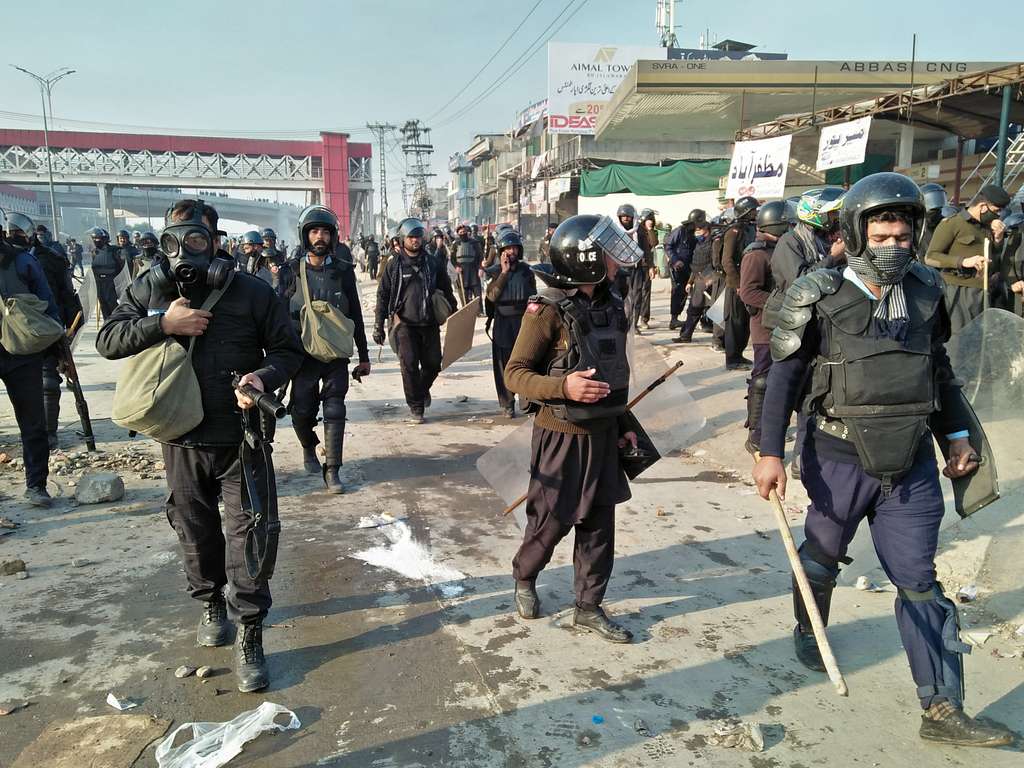Today’s Headlines and Commentary
Lawfare’s daily roundup of national security news and opinion.
A unanimous three-judge panel of a federal appeals court ruled that the National Security Agency’s telephone metadata program was illegal and possibly unconstitutional, reports Politico. The judges found that the program, which involved bulk collection of Americans’ phone records, violated the Foreign Intelligence Surveillance Act and potentially violated the Fourth Amendment. The call-tracking surveillance effort began in 2001 and was officially shut down in 2015.
Newly available footage from March shows Rochester police pinning a Black man to the ground and suffocating him, reports CNN. The man, Daniel Prude, was declared brain dead upon arriving at the hospital. Prude was suffering a mental health episode when his brother called the police for help. His death was ruled a homicide by the county medical examiner.
Facebook will ban all new political advertisements during the week before the presidential election, according to ABC News. Company CEO Mark Zuckerberg said that he intends the ban to counteract misinformation about voting and the novel coronavirus. Zuckerberg has previously argued that “the best antidote to bad speech is good speech,” but today he expressed concern that there would not be enough time to correct harmful posts in the days preceding the election. Facebook will also highlight its Voting Information Center so that users can find voter registration deadlines and watch tutorials about mail-in voting.
The Department of Homeland Security (DHS) withheld a July 9 intelligence bulletin that warned with high confidence of a Russian scheme to promote allegations about Joe Biden’s mental fitness, according to ABC News. The analysis was supposed to be distributed to law enforcement partners, but a senior DHS official asked for a delay and has not since released the bulletin. Critics say that this delay reflects a politicization of intelligence by the Trump administration. Today, 11 Democratic Senators asked Treasury Secretary Mnuchin to impose sanctions on the Russians allegedly responsible for spreading the false theory.
India has banned 118 Chinese apps from its domestic market, writes The New York Times. Earlier this summer, the Indian government banned 59 apps after a fatal border dispute between the two countries in Eastern Ladakh. The Times writes that anti-Chinese sentiment has enveloped India this summer, with some Indians protesting on the streets and smashing Chinese-made products.
An American freelance journalist discovered he was accidentally writing for a Russian troll front, reports The New York Times. Colin Wood believed he was contributing to a newly created news website called Peace Data, but he grew suspicious of the site’s editors after obvious grammar mistakes in their emails and their insistence on content hostile to the Democratic Party.
Secretary of State Mike Pompeo imposed new sanctions on senior officials involved in the International Criminal Court (ICC), reports BBC. Pompeo accused the ICC, which is currently investigating alleged war crimes committed by the U.S. and others in Afghanistan, of “illegitimate attempts to subject Americans to its jurisdiction.” The U.S. is not a member state to the ICC, but Afghanistan is.
Afghan officials and the Taliban have reached a compromise over the release of prisoners and now plan to begin peace talks, according to Reuters. The Taliban demanded the release of 5000 prisoners as a precondition for negotiations, a request that has stalled talks between the parties for months. The Afghan government has since complied and freed all but seven prisoners on the list.
A U.S. Marine convicted of murder in the Philippines may soon been released after six years, reports The New York Times. Lance Cpl. Joseph Scott Pemberton brought a transgender woman to his hotel room and then killed her after learning she was trans. Filipino activist Cristina Palabay said that his release two years early “will go down in the annals of Philippine history as among the most notorious proof that the U.S. continues to trump Philippine sovereignty to this day.”
Today, Beijing emphasized its right to exercise control over the sale of technology abroad, reports Bloomberg. The assertion means that China will play a role in the sale of TikTok’s U.S. operations to an American company, furthering complicating a deal that was already under a great deal of scrutiny from the Trump administration.
The Center for Disease Control and Prevention has outlined technical plans to prepare and distribute a COVID-19 vaccine for certain high-risk groups as soon as late October, writes the Times. However, many health experts are wary of the dangers of fast-tracking vaccine development. “This timeline of the initial deployment at the end of October is deeply worrisome for the politicization of public health and the potential safety ramifications,” said Saskia Popescu, an infection prevention epidemiologist. “It’s hard not to see this as a push for a pre-election vaccine.”
The Washington Post explores how the Department of Defense (DOD) may have kickstarted expensive border wall projects that benefit Republican senators. In an April memo, Defense Secretary Mark Esper indicated that the Pentagon would divert $545.5 million from overseas projects in order to fund construction at domestic military bases. The Pentagon restored funding, for example, to previously defunct projects in Sen. McSally’s Arizona and Sen. McConnell’s Kentucky.
ICYMI: Yesterday on Lawfare
Bobby Chesney and Matthew Waxman shared their series of national security lectures, which are intended for students, teachers, lawyers, journalists, and anyone else who finds them useful.
Benjamin Wittes announced the tenth birthday of Lawfare and asked readers to consider donating for the occasion.
Zachary Price argued that Congress should use its broad powers to restructure the military.
Nicol Lee and Darrell M. West, both of Brookings, shared an episode of the TechTank podcast. West spoke with Rep. David Cicilline about “Why We Need a Glass-Steagall Act for the Internet.”
Abdul Sayed delved into the leadership of the Islamic State- Khorasan Province in Afghanistan.
Jen Patja Howell shared the “Cruel Summer Edition” of Rational Security. Shane Harris, Susan Hennessey, Benjamin Wittes and Tamara Cofman Wittes discussed what’s going on in the news.
Howell also shared an episode of The Lawfare Podcast entitled “Briefings Schmiefings.” Benjamin Wittes spoke with David Priess and Margaret Taylor about Director of National Intelligence John Ratcliffe’s decision to stop orally briefing Congress about election security issues.
Email the Roundup Team noteworthy law and security-related articles to include, and follow us on Twitter and Facebook for additional commentary on these issues. Sign up to receive Lawfare in your inbox. Visit our Events Calendar to learn about upcoming national security events, and check out relevant job openings on our Job Board.




.jpg?sfvrsn=407c2736_6)

